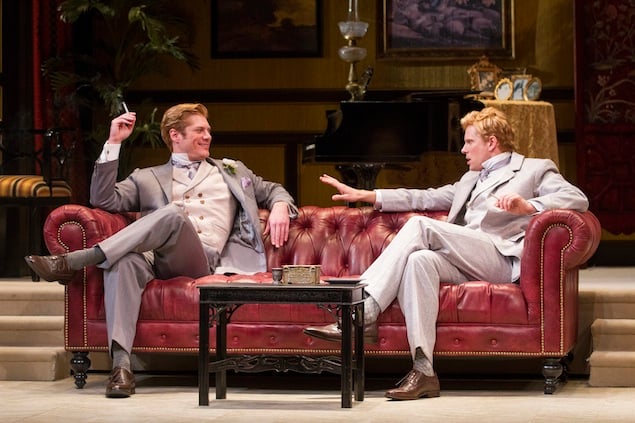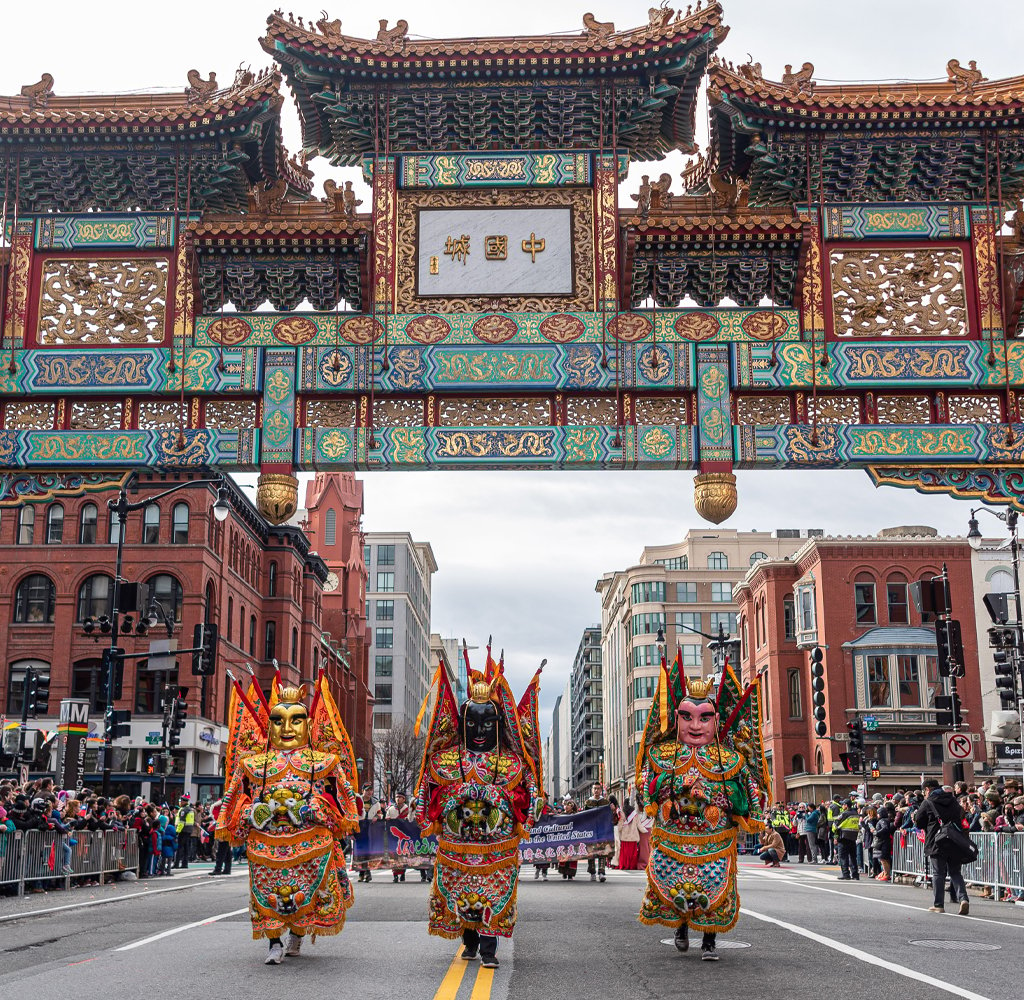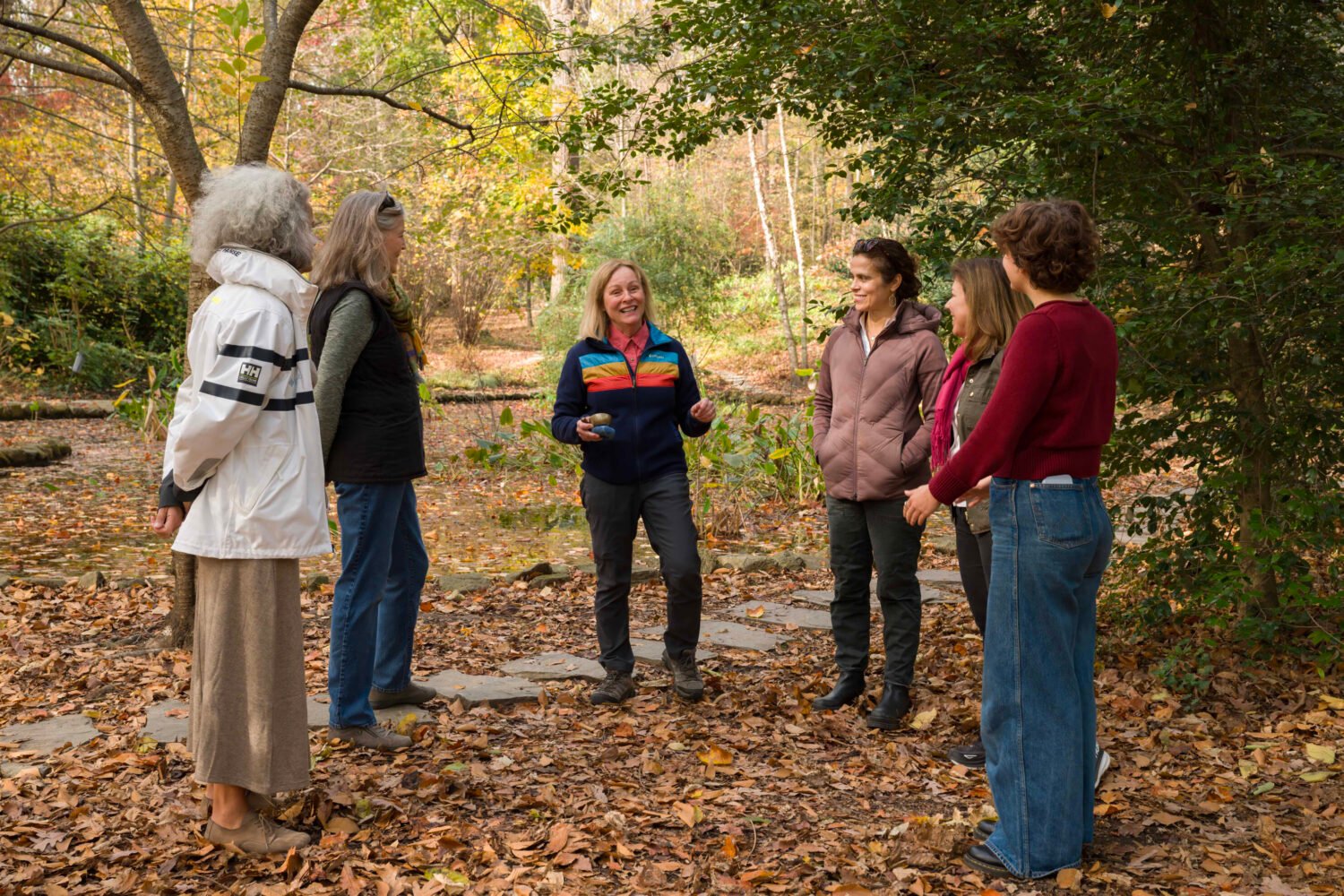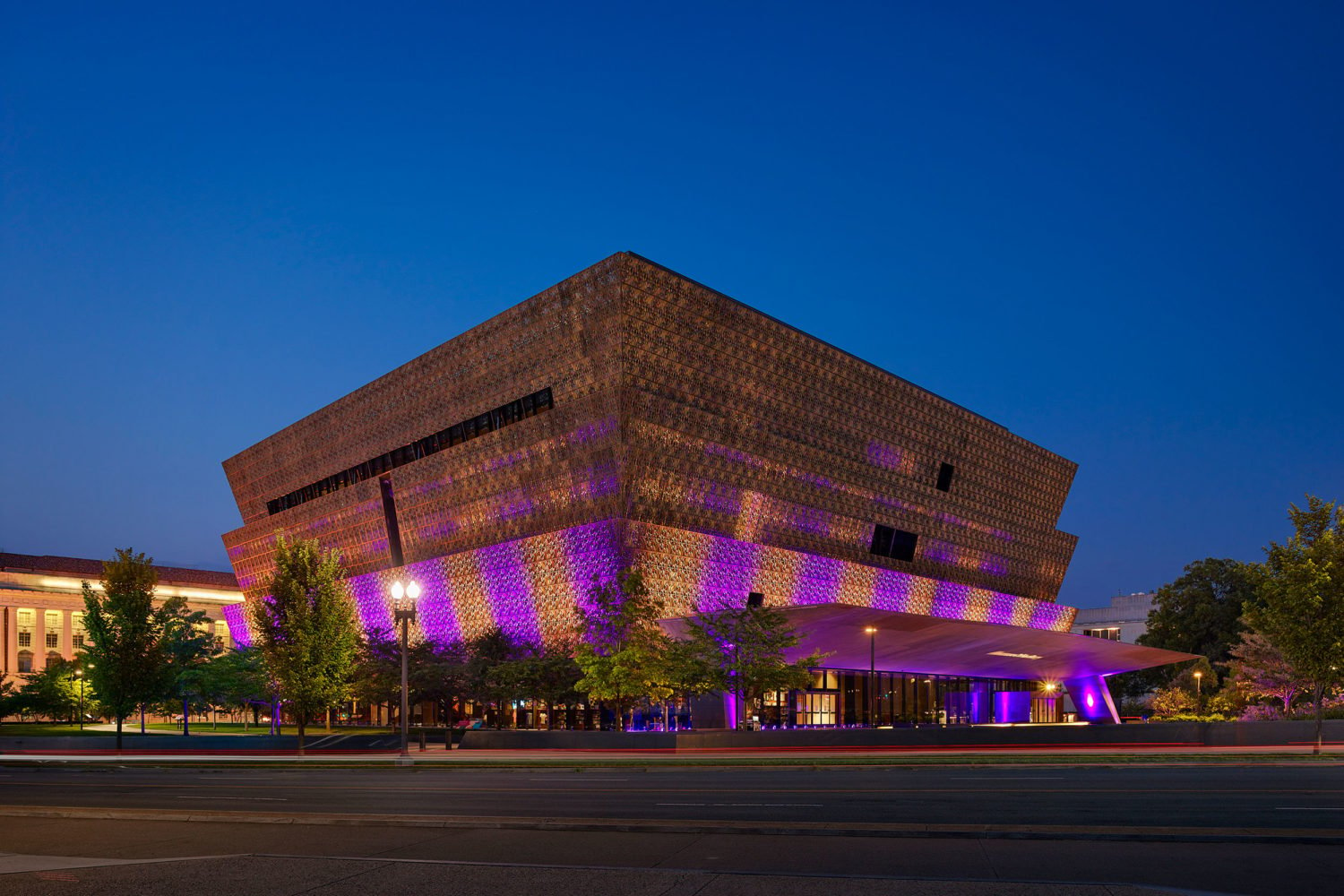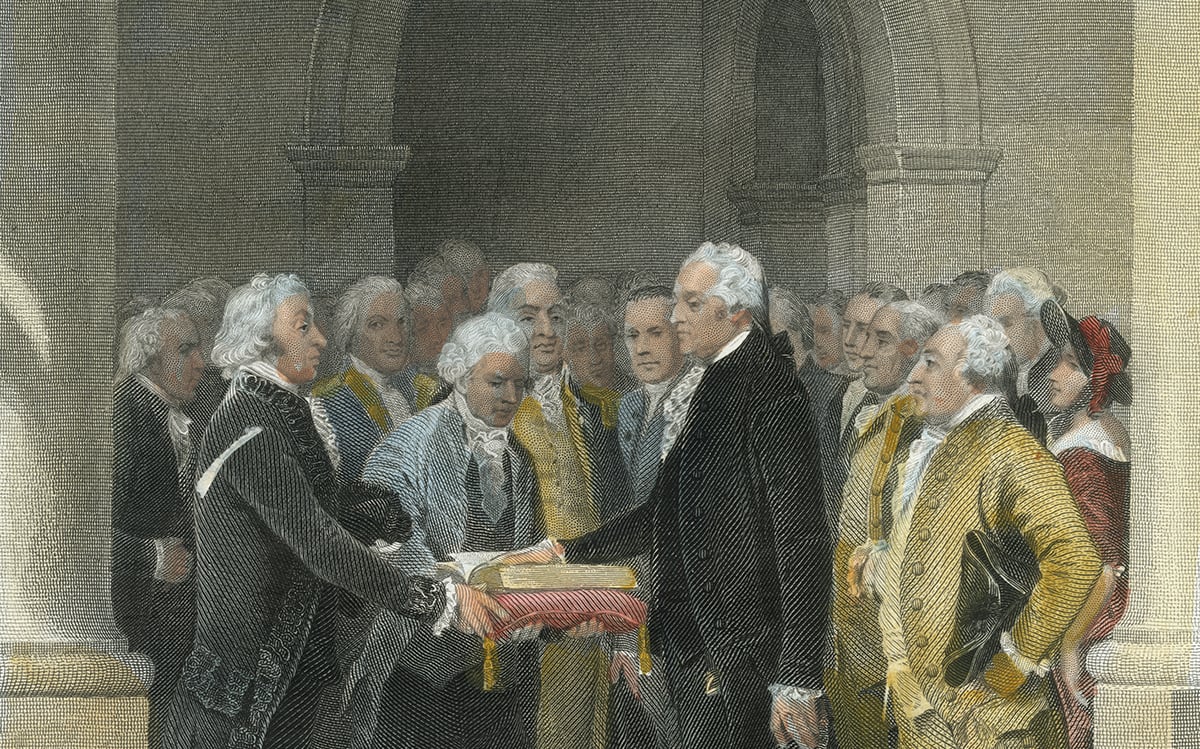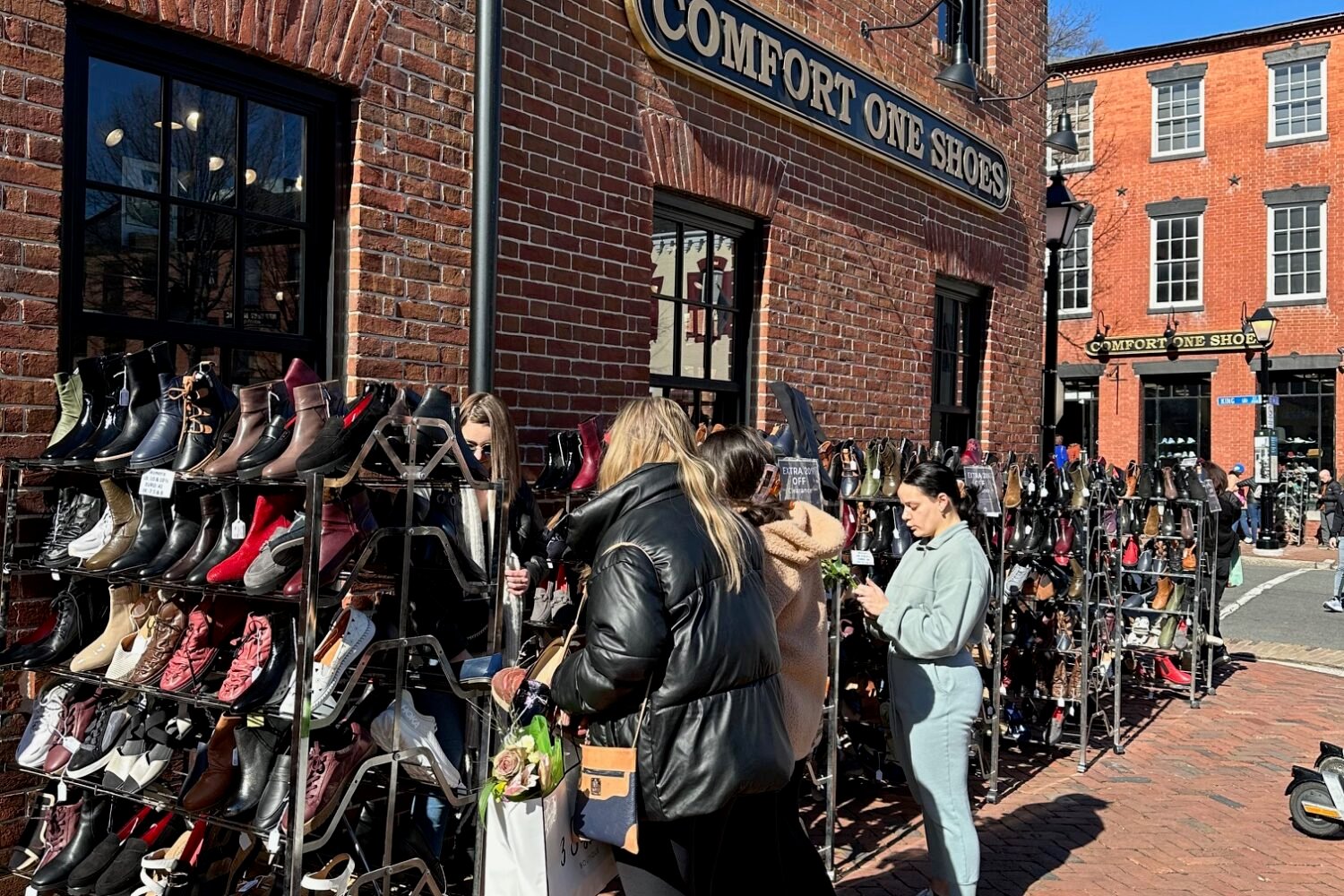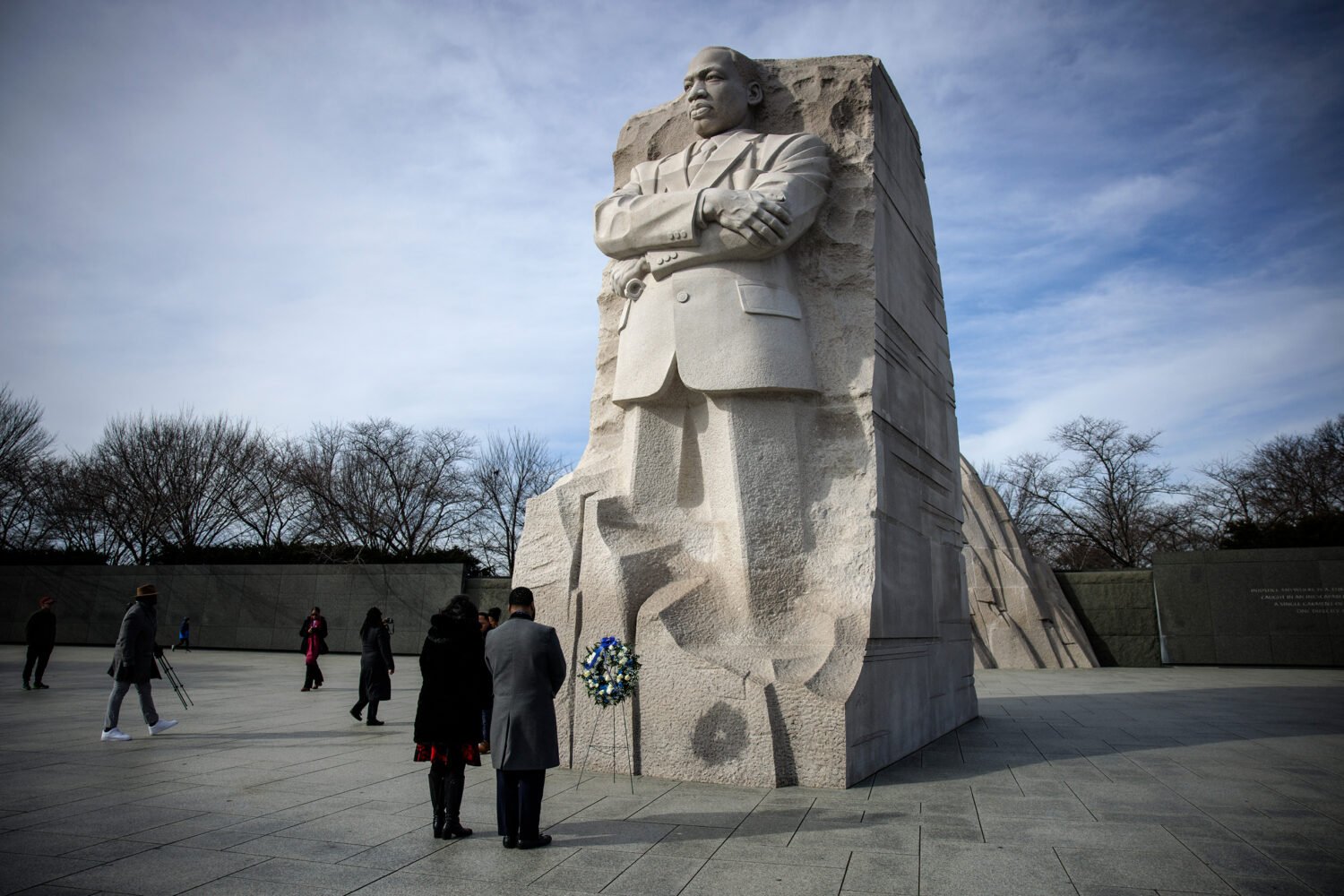
If ever a play required a wildly enticing set, it’s The Importance of Being Earnest, a work of literary genius in which celebrating superficiality and style over substance is paramount. Shallow to its core, Oscar Wilde’s farce of upside-down morality and manners in Victorian England glosses over duller matters such as death and love in favor of pomp and circumstance, and it’s hard to imagine a more appropriate staging than Keith Baxter’s current production at Shakespeare Theatre, where the unveiling of one spectacular scenery change on press night prompted the audience to break into spontaneous applause.
Baxter, last at Shakespeare for An Ideal Husband, has also directed Wilde’s Lady Windermere’s Fan in Washington, but this might be his crown jewel when it comes to lush aesthetics. Set designer Simon Higlett has crafted an apartment for Algernon that rivals the Peacock Room at the Freer in terms of opulence. Black onyx urns rest against the silk walls, a Chinese shade stands in the background, and the leather Chesterfield couch in the center of the room serves as an ode to both Victorian masculinity (something of an oxymoron in Earnest) and classic design.
Baxter’s actors are equally easy on the eyes: Frivolous Algie Montcrieff (Anthony Roach) and the only slightly more serious Jack Worthing (Gregory Wooddell) sport identical shades of blond hair, dyed, presumably, to match their Ken-doll good looks. Gwendolen Fairfax (Vanessa Morosco) sweeps into the room sporting a wedding-cake confection with sleeves as starchy and formidable as Lady Bracknell (Sian Phillips), herself a vision decked out in midnight-blue taffeta (the costumes are by Robert Perdziola).
With the elegance and barbs strewn about so liberally, all that’s required of the cast, really, is to deliver aghast lines about handbags with aplomb and not delve too deeply into the possible subtext of “Bunburying.” There have been attempts in the past to mine greater meaning from the play with creative interpretation—notably Kurt Baker’s use of an entirely African-American cast in his 1992 film—but Baxter wisely desists, choosing instead to make the play’s emphasis on triviality its most defining quality. And it works, with hardly any of the characters pretending to have redeeming points at all. The servants steal, the women fight, the men lie, all amid the most beautiful surroundings of an English country garden with more florals than a vintage Laura Ashley catalog.
Phillips, the Welsh actress famous for her many British film and television roles (and her marriage to Peter O’Toole), is a conniving and thoroughly clever Lady Bracknell, managing to convey more than a whiff of the imperious aristocrat’s middle-class heritage in the glee with which she responds to the fortune of Cecily (who is played with fine humor and slightly batty charm by Katie Fabel). Morosco’s Gwendolen, meanwhile, is less haughty and sweeter than she’s often played, seeming to trail behind her mother more like a beleaguered companion than a triumphant battleship.
Roach and Wooddell, friends in real life, have an easy chemistry and an obvious affection for each other as they tussle over muffins and cucumber sandwiches and while away their hours in genteel idleness. The cast is also bolstered by a fine Patricia Conolly as the dappy Miss Prism, Floyd King as Dr. Chasuble, Todd Scofield as Lane, and John O’Creagh as Merriman. The one minor snag is that the lovely, languorous air of easy entitlement in the first act can cause the pace to drag occasionally. While no one wants Wilde’s greatest words to get lost, a little more energy at times would go a long way. Still, with such a gorgeous feast for the eyes on stage, it’s a small price to pay for such a visually enchanting spectacle.
The Importance of Being Earnest is at Shakespeare Theatre through March 9. Running time is about two and a half hours, with two intermissions. Tickets ($18 to $106) are available via Shakespeare’s website.

